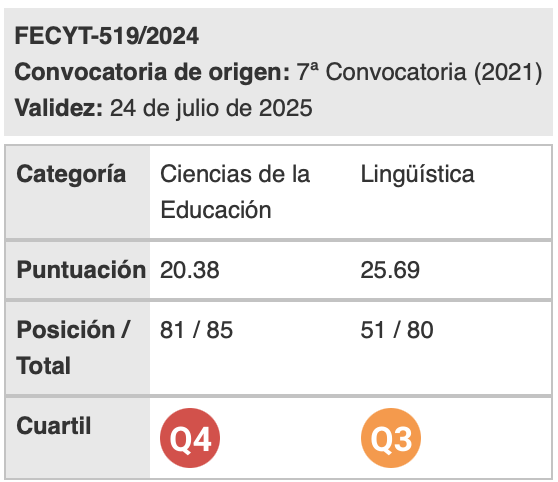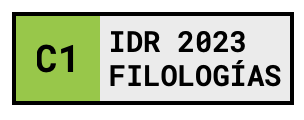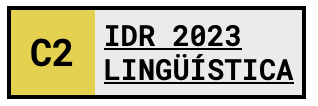A Genre-oriented Translation-based Instruction to Professional Communication
Keywords:
lingüística aplicadaAbstract
This paper seeks to validate the use of translation as a methodological procedure that facilitates learners' interpretation of professional writing practices. We mainly contend that translation activities can become an adequate linguistic input in the teaching of professional written genres as regards the analysis of the linguistic, rhetorical and social components of these genres. Relying on the students' comparison of source text and target text, the paper discusses (i) how translation- based assignments reinforce the acquisition of lexico-grammatical patterns at a textual level, (ii) how L1 to L2 transfer foregrounds the way texts are organised and the way thematic elements are semantically connected within a rhetorical structure, and (iii) how translation-based noticing helps teachers raise learners' aware- ness of interpersonal mechanisms, epistemic positions and, more broadly speaking, of the construction and negotiation of social relations in the professional arena. As reported in the paper, teacher/students discussion in an ESP classroom illustrate the role of translation as a suitable pedagogical means to raise students' awareness of those textual, rhetorical and social aspects involved in professional genres.
Downloads
Downloads
Published
How to Cite
Issue
Section
License
Authors who publish with this journal agree to the following terms:
- Authors retain copyright and grant the journal right of first publication with the work simultaneously licensed under a Creative Commons Attribution License that allows others to share the work with an acknowledgement of the work's authorship and initial publication in this journal.
- Authors are able to enter into separate, additional contractual arrangements for the non-exclusive distribution of the journal's published version of the work (e.g., post it to an institutional repository or publish it in a book), with an acknowledgement of its initial publication in this journal.
- Authors are permitted and encouraged to post their work online (e.g., in institutional repositories or on their website) prior to and during the submission process, as it can lead to productive exchanges, as well as earlier and greater citation of published work (See The Effect of Open Access).

Revista de Lenguas para fines específicos is licensed under a Creative Commons Reconocimiento-NoComercial-SinObraDerivada 4.0 Internacional License.
























